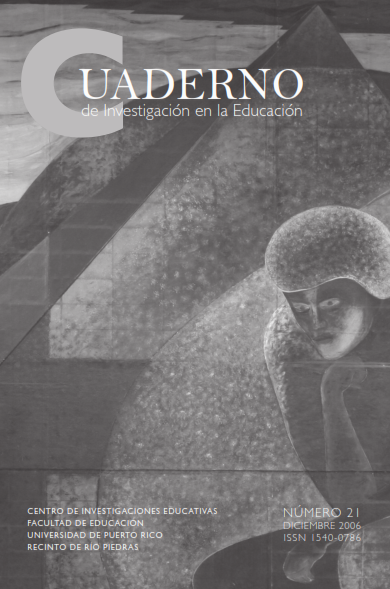Abstract
This article argues that all English as a Second Language (ESL) courses at the University of Puerto Rico should be content courses because class inequalities are perpetuated by tracking low proficiency students into skills based courses. By combining essay writing with activities specially tailored to group interests (self-selected reading, community service, field trip) content and skills were integrated into the lowest proficiency level course. By foregrounding student voices in this report, I claim that academic content does not have to be delayed until students have control over vocabulary and structure; content and skills can be developed in tandem. Moreover, it emphasizes the importance of affect in strengthening the educational experience. Although students completed the semester with grammatical problems, thereby leaving on the table the question of when and how to teach grammar, their voices do indicate that it is more profitable to insert grammar into a content based frame than the traditional prescriptive based treatments.
How to cite:
Haiman, A. (2006). Beyond skills development. Cuaderno de Investigación en la Educación, 21, 57-69. Retrieved from https://revistas.upr.edu/index.php/educacion/article/view/13235
The contents published in the Puerto Rico Journal of Education is freely distributed under open access practices, in accordance with the Creative Commons license, Attribution-NonCommercial 4.0 International (CC BY-NC 4.0). Through these principles, the journal and its authors allow readers to access, reproduce and share articles in full text. Users should give credit to authors in a reasonable way without suggesting they have their support. Under no circumstances, readers may make use of the contents for commercial purposes. The authors retain copyright on their works.

